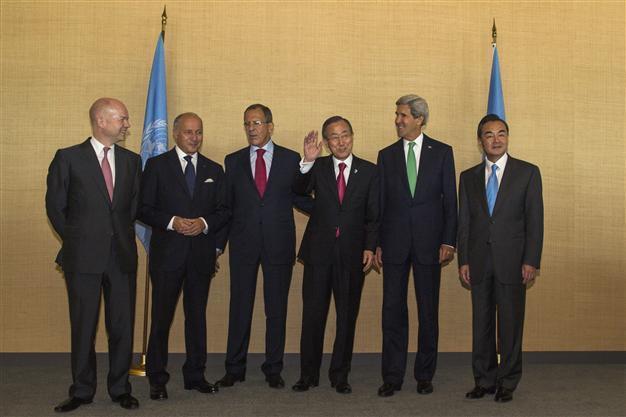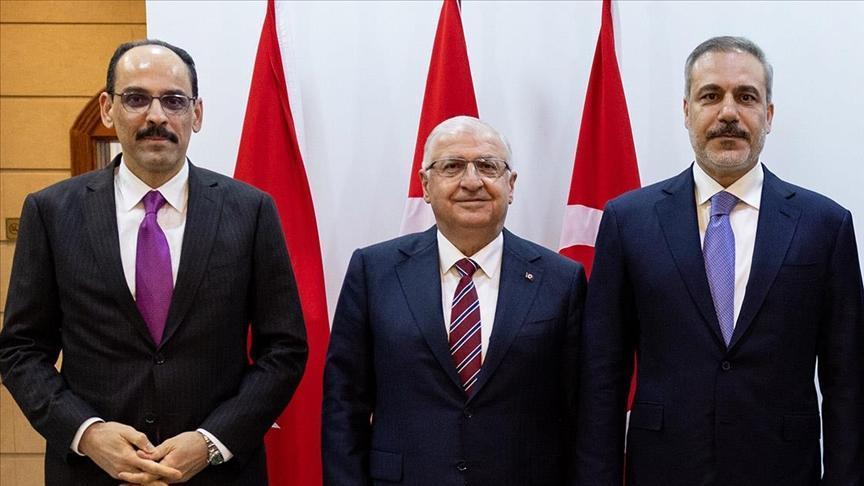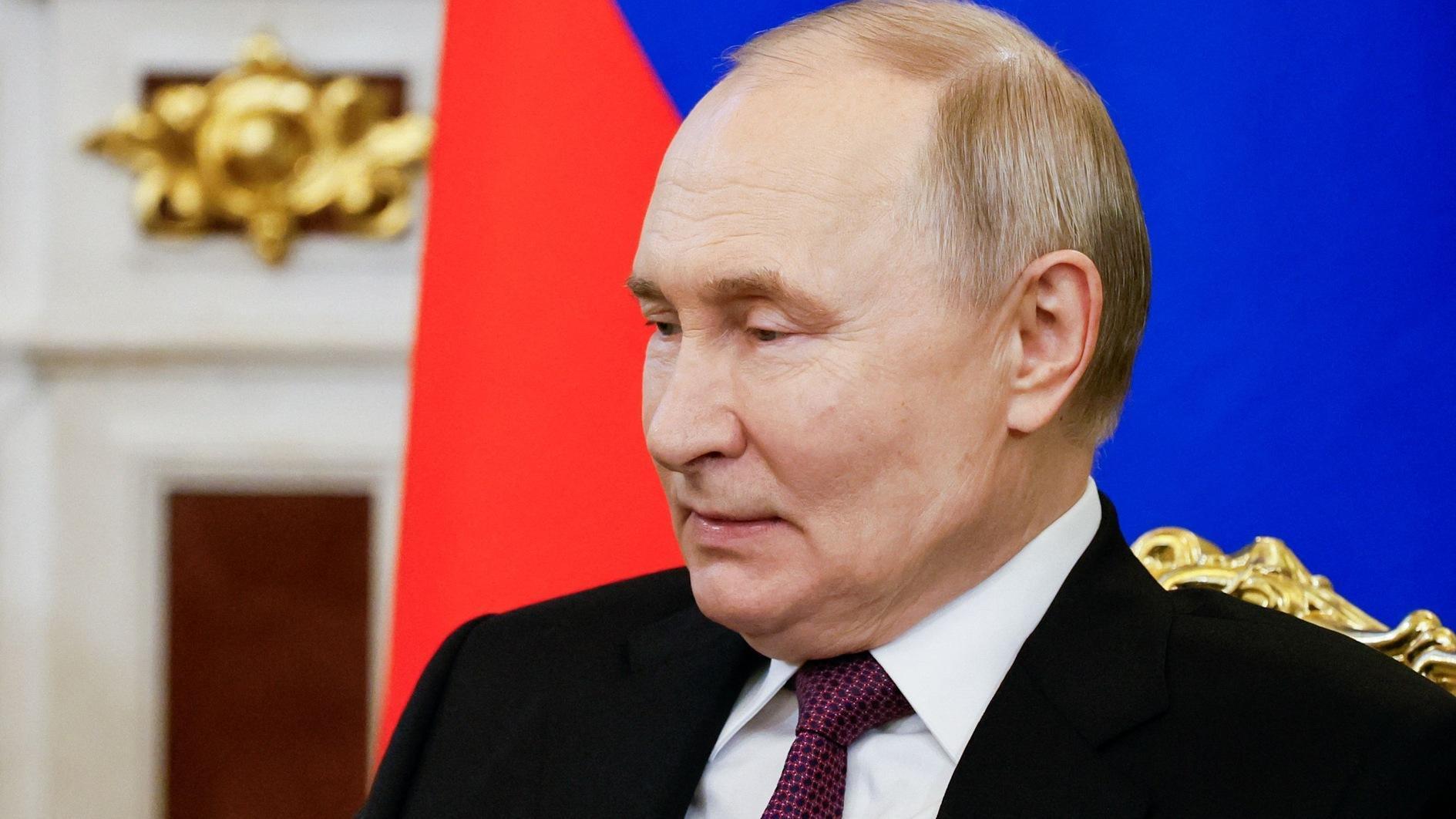Russia aside Permanent Security Council members agree on core of UN Syria draft resolution: Diplomats
UNITED NATIONS - Reuters

Foreign Ministers representing the permanent five member countries of the United Nations Security Council pose together on the sidelines of the U.N. General Assembly at U.N. Headquarters in New York, Sept. 25. REUTERS photo
After weeks of haggling, the United States, Russia, France, China and Britain have agreed on the core of a U.N. Security Council resolution to rid Syria of its chemical weapons, two Western diplomats said on Sept. 25, but Russia denied such an agreement.The agreement came after the foreign ministers of the five permanent members of the council met over lunch with U.N. Secretary General Ban Ki-moon earlier in the day, the diplomats said, speaking on condition of anonymity.
They said a draft resolution could be presented to the full 15-nation council soon, and the five permanent members would also meet on Sept. 27 to discuss a proposed Syria peace conference in Geneva.
"It seems that things are moving forward," said a Western diplomatic source, adding that there was "an agreement among the five on the core."
"We are closer on all the key points," he said.
But Russia rejected suggestions by the Western diplomats that there was an agreement on the core of a draft resolution.
"This is just their wishful thinking," the spokesman for Russia's U.N. delegation said. "It is not the reality. The work on the draft resolution is still going on."
The five veto-wielding permanent members of the Security Council - Russia, the United States, France, Britain and China - have been negotiating a resolution to demand the destruction of Syria's chemical arsenal in line with a U.S.-Russian deal reached earlier this month.
Negotiations on a draft in New York had come to a standstill while Russia and the United States struggled to reach an agreement acceptable to both.
But it appears that after talks between U.S. Secretary of State John Kerry and his Russian counterpart Sergei Lavrov on Sept. 24, the deadlock was broken.
A major sticking point between Russia and Western powers has been whether the resolution is written under Chapter 7 of the U.N. charter, which covers the Security Council's authority to enforce decisions with measures such as sanctions or military force.
Russia, a staunch ally of Syrian President Bashar al-Assad, has made clear it would not accept an initial resolution under Chapter 7 and that any punitive measures would come only in the event of clearly proven Syrian non-compliance on the basis of a second council resolution under Chapter 7.
A Western diplomat who had seen the latest draft before the Ban Ki-moon meeting said the only reference to Chapter 7 was at the end - a threat that in the event of non-compliance the council should "impose measures" under Chapter 7. To carry out that threat, a second resolution would be needed.
There is, the diplomat said, no reference to Chapter 7 in the rest of the resolution, though the language is identical to what would normally be in a Chapter 7 resolution.
Al-Assad agreed to destroy Syria's chemical weapons in the wake of a sarin gas strike on civilians in the suburbs of Damascus last month - the world's deadliest chemical arms attack in 25 years.
Washington blamed al-Assad's forces for the attack, which it said killed more than 1,400 people, and President Barack Obama threatened a U.S. military strike in response. Russia and al-Assad have blamed the attack on rebels who are battling to overthrow him in a civil war raging since 2011.
















